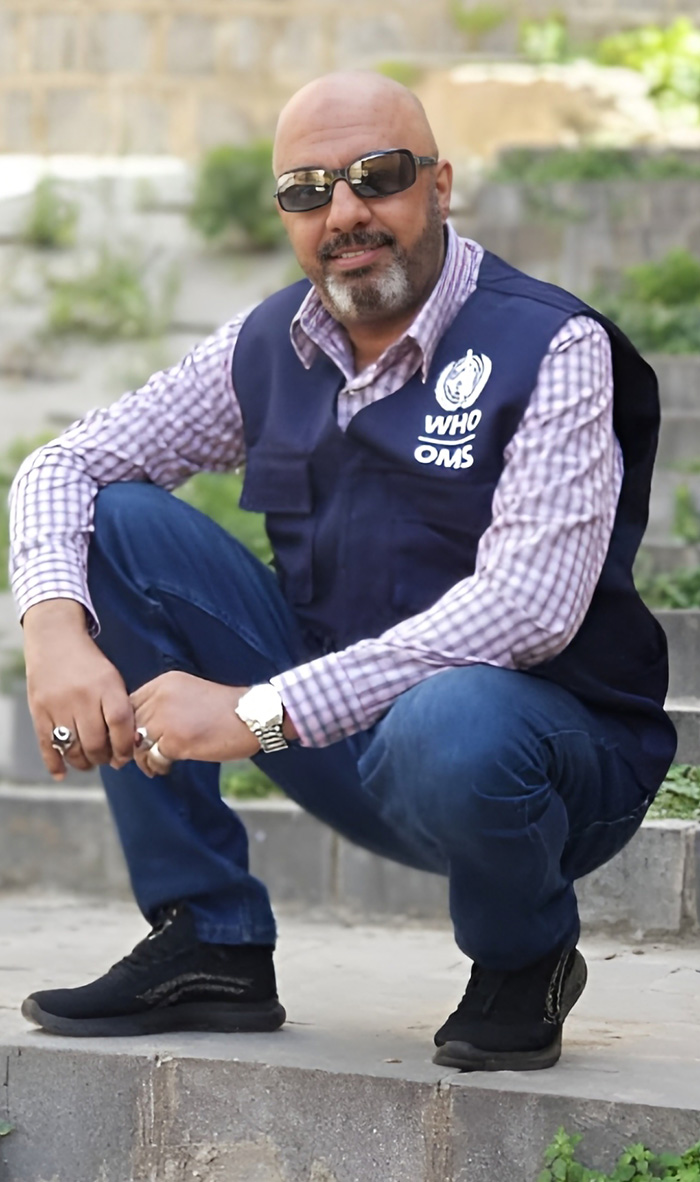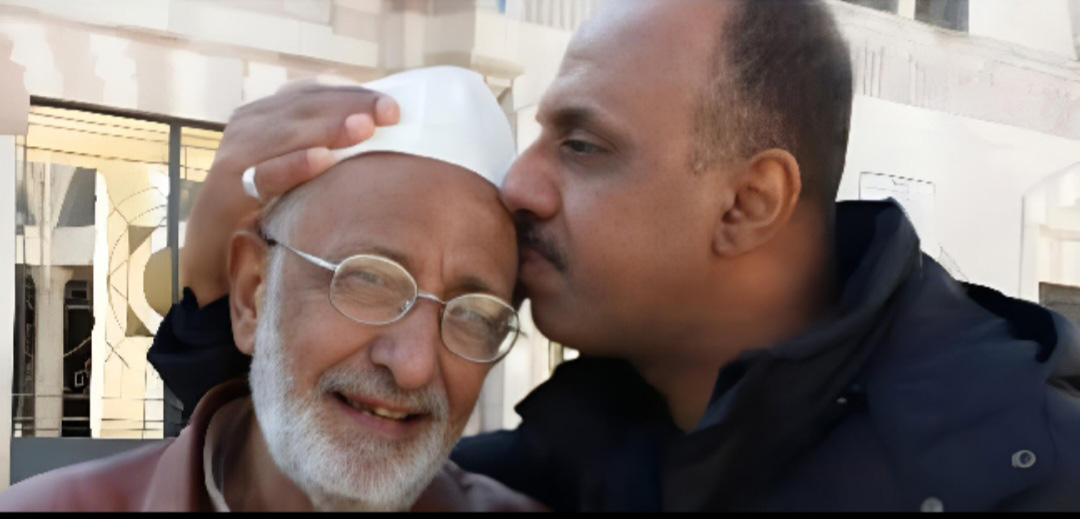Episode 5
 Dr Ahmed Al Soofi
Dr Ahmed Al Soofi
Head of WHO suboffice in Al Hudaydah, YemenMy journey with WHO began in 2007, following years of service with Yemen’s health ministry and a Belgian nongovernmental organization dedicated to assisting people with disabilities.
Al-Hudaydah, nestled by the Red Sea, presents unique challenges. It has experienced years of conflict and continues to suffer consistent instability. This has escalated in the past few months, as the impact of the war in the occupied Palestinian territory has spilled over into Yemen. In fact, only the other day, when I was leaving the office, there was an airstrike close by, about 500 metres away.
But it has not been easy here for years. One of the most challenging times for Hudaydah was in the second half of 2018. I remember travelling from Hudaydah to Aden, where my family lives, to spend the last few days of Ramadan with them, when I had to return to work immediately after arriving home.
Just as I’d reached Aden, I had received an urgent call from the WHO Representative to Yemen, who was in Geneva at the time. He told me the situation in Hudaydah was rapidly worsening and that it had become the main area of the conflict in Yemen. I left for the office. I travelled back from Aden to Hudaydah – a journey of about 450 km off-road, which took 12 hours – after having spent only one day at home.
When I reached the office, I realized how crucial it was to have come back. Security conditions had rapidly deteriorated and, within days, Hudaydah had become a frontline of the conflict. Our essential staff, a team of 8, had to stay in the basement of the WHO office for months due to constant artillery strikes and airstrikes in the city. In a single week, there were sometimes about 200 raids, usually airstrikes.
I vividly remember how we worked day and night. I was overseeing WHO’s field operations and we were all doing our utmost to support the emergency response in Yemen and ensure that medical supplies reached health facilities and communities in time. Other United Nations agencies were also camped in our office. I learned then how, in tough times, people come together and work as one. We worked well in coordination and gave each other support.
While grappling with the ongoing conflict, a new set of challenges arrived with the onset of the COVID- 19 pandemic. There was extreme nervousness when COVID-19 paralysed life as we knew it. But although the world was at a standstill, we were in a humanitarian crisis and our work could not stop.

The team had a virtual daily meeting at 09:00 and kept our work going while taking all possible precautions to protect ourselves from the virus. It was then that my father became critically ill in Jordan. The security situation was too unstable for me to travel by road to see him and all the airports were closed. I really wanted to visit him, but it was not possible, and eventually he died. It was so difficult being far away from my father and unable to be with him in his final days. I could not say goodbye or be part of his funeral.
Humanitarian work has taught me several invaluable lessons on how to live life. In some of the most challenging times, like I mentioned about the airstrikes during 2018, I learned the importance of cooperation and partnership. Crises require collaboration towards common goals. The way we came together as UN partners allowed us to gain from each other’s strengths and work as a united team.
I also learn greatly from the people here in Yemen. Having seen so much conflict and terrible humanitarian conditions, they still have great strength and resilience. It has been inspiring to witness, and it has taught me that even in difficult circumstances, hope is possible.
What gives me strength and clarity, and in turn helps me cope with the challenges of my professional life, is a deep passion for exploring mysticism of different cultures. I gravitate most towards Sufism. This offers me a profound sense of spirituality and helps build a deeper understanding of and greater appreciation for the values and beliefs that govern people’s lives around the world. It enhances my connection with both my inner self and others, and I enjoy the process of immersing myself in this field of wisdom and contemplation.




